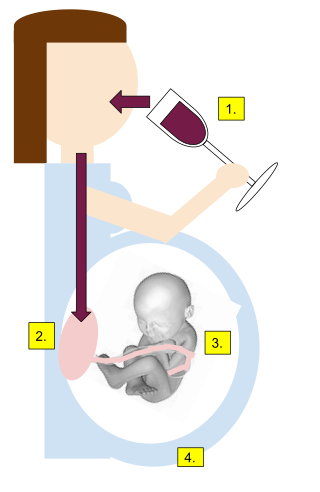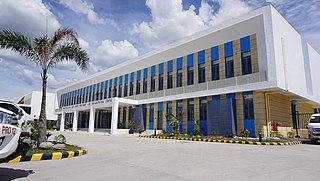Related Research Articles

Alcoholism is the continued drinking of alcohol despite negative results. Problematic use of alcohol has been mentioned in the earliest historical records, such as in ancient Egypt and in the Bible, and remains widespread; the World Health Organization (WHO) estimated there were 283 million people with alcohol use disorders worldwide as of 2016. The term alcoholism was first coined in 1852, but alcoholism and alcoholic are stigmatizing and discourage seeking treatment, so clinical diagnostic terms such as alcohol use disorder or alcohol dependence are used instead.

Substance abuse, also known as drug abuse, is the use of a drug in amounts or by methods that are harmful to the individual or others. It is a form of substance-related disorder. Differing definitions of drug abuse are used in public health, medical, and criminal justice contexts. In some cases, criminal or anti-social behavior occurs when the person is under the influence of a drug, and long-term personality changes in individuals may also occur. In addition to possible physical, social, and psychological harm, the use of some drugs may also lead to criminal penalties, although these vary widely depending on the local jurisdiction.
Drug rehabilitation is the process of medical or psychotherapeutic treatment for dependency on psychoactive substances such as alcohol, prescription drugs, and street drugs such as cannabis, cocaine, heroin or amphetamines. The general intent is to enable the patient to confront substance dependence, if present, and stop substance misuse to avoid the psychological, legal, financial, social, and physical consequences that can be caused.

Alcohol dependence is a previous psychiatric diagnosis in which an individual is physically or psychologically dependent upon alcohol.

A halfway house is an institute for people with criminal backgrounds or substance use disorder problems to learn the necessary skills to re-integrate into society and better support and care for themselves.
Substance dependence, also known as drug dependence, is a biopsychological situation whereby an individual's functionality is dependent on the necessitated re-consumption of a psychoactive substance because of an adaptive state that has developed within the individual from psychoactive substance consumption that results in the experience of withdrawal and that necessitates the re-consumption of the drug. A drug addiction, a distinct concept from substance dependence, is defined as compulsive, out-of-control drug use, despite negative consequences. An addictive drug is a drug which is both rewarding and reinforcing. ΔFosB, a gene transcription factor, is now known to be a critical component and common factor in the development of virtually all forms of behavioral and drug addictions, but not dependence.
Residential care refers to long-term care given to adults or children who stay in a residential setting rather than in their own home or family home.
The psychosocial approach looks at individuals in the context of the combined influence that psychological factors and the surrounding social environment have on their physical and mental wellness and their ability to function. This approach is used in a broad range of helping professions in health and social care settings as well as by medical and social science researchers.

Deinstitutionalisation is the process of replacing long-stay psychiatric hospitals with less isolated community mental health services for those diagnosed with a mental disorder or developmental disability. In the late 20th century, it led to the closure of many psychiatric hospitals, as patients were increasingly cared for at home, in halfway houses and clinics, in regular hospitals, or not at all.
Phoenix House is a nonprofit drug and alcohol rehabilitation organization operating in ten states with 150 programs. Programs serve individuals, families, and communities affected by substance abuse and dependency.
A mental health professional is a health care practitioner or social and human services provider who offers services for the purpose of improving an individual's mental health or to treat mental disorders. This broad category was developed as a name for community personnel who worked in the new community mental health agencies begun in the 1970s to assist individuals moving from state hospitals, to prevent admissions, and to provide support in homes, jobs, education, and community. These individuals were the forefront brigade to develop the community programs, which today may be referred to by names such as supported housing, psychiatric rehabilitation, supported or transitional employment, sheltered workshops, supported education, daily living skills, affirmative industries, dual diagnosis treatment, individual and family psychoeducation, adult day care, foster care, family services and mental health counseling.

A residential treatment center (RTC), sometimes called a rehab, is a live-in health care facility providing therapy for substance use disorders, mental illness, or other behavioral problems. Residential treatment may be considered the "last-ditch" approach to treating abnormal psychology or psychopathology.
Dual diagnosis is the condition of having a mental illness and a comorbid substance use disorder. There is considerable debate surrounding the appropriateness of using a single category for a heterogeneous group of individuals with complex needs and a varied range of problems. The concept can be used broadly, for example depression and alcohol use disorder, or it can be restricted to specify severe mental illness and substance use disorder, or a person who has a milder mental illness and a drug dependency, such as panic disorder or generalized anxiety disorder and is dependent on opioids. Diagnosing a primary psychiatric illness in people who use substances is challenging as substance use disorder itself often induces psychiatric symptoms, thus making it necessary to differentiate between substance induced and pre-existing mental illness.
The drug policy of Sweden is based on zero tolerance focusing on prevention, treatment, and control, aiming to reduce both the supply of and demand for illegal drugs. The general drug policy is supported by all major Swedish political parties with the exceptions of the Left Party - which advocates for the decriminalization of private consumption - and 5 of the 7 major parties' youth wings.
Institutional abuse is the maltreatment of a person from a system of power. This can range from acts similar to home-based child abuse, such as neglect, physical and sexual abuse, and hunger, to the effects of assistance programs working below acceptable service standards, or relying on harsh or unfair ways to modify behavior. Institutional abuse occurs within emergency care facilities such as foster homes, group homes, kinship care homes, and pre-adoptive homes. Children who are placed in this type of out of home care are typically in the custody of the state. The maltreatment is usually caused by an employee of the facility.
Relapse prevention (RP) is a cognitive-behavioral approach to relapse with the goal of identifying and preventing high-risk situations such as unhealthy substance use, obsessive-compulsive behavior, sexual offending, obesity, and depression. It is an important component in the treatment process for alcohol use disorder, or alcohol dependence. This model founding is attributed to Terence Gorski's 1986 book "Staying Sober."

The administrative courts in Sweden are the court of first instance for the general administrative courts in Sweden. The next instance are the administrative courts of appeal. The administrative courts handle numerous types of cases relating to disputes between private persons and the authorities. There are 12 administrative courts spread across Sweden.
Jalie A Tucker is a professor of Health Education and Behavior at the University of Florida. She is known for her research on impulsive and harmful behaviors, such as alcohol and substance use, the effect of the environment on addiction, and natural resolutions to risky behavior including alcohol misuse. She has received numerous awards for excellence in clinical psychology and addiction research, including the 2015 Award for Distinguished Scientific Contributions to Clinical Psychology from the Society of Clinical Psychology. She was honored by APA, Division 50 with the Presidential Award for Service to the Division in 2010 and 2012.
Discrimination against drug addicts is a form of discrimination against people who suffer from a drug addiction.

Prescription drug addiction is the chronic, repeated use of a prescription drug in ways other than prescribed for, including using someone else’s prescription. A prescription drug is a pharmaceutical drug that may not be dispensed without a legal medical prescription. Drugs in this category are supervised due to their potential for misuse and substance use disorder. The classes of medications most commonly abused are opioids, central nervous system (CNS) depressants and central nervous stimulants. In particular, prescription opioid is most commonly abused in the form of prescription analgesics.
References
- ↑ "Administrative courts". The Swedish courts. 2005-11-27. Retrieved 18 July 2014.
- 1 2 "The Swedish National Board of Institutional Care". The Swedish National Board of Institutional Care. Retrieved 18 July 2014.
- ↑ "LVU – assessment and treatment in special residential homes for young people". SiS. Retrieved 18 July 2014.
- ↑ "LSU – secure youth care instead of prison". SiS. Retrieved 18 July 2014.
- ↑ "LVM – motivating adults with substance misuse problems to continue their treatment". SiS. Retrieved 18 July 2014.